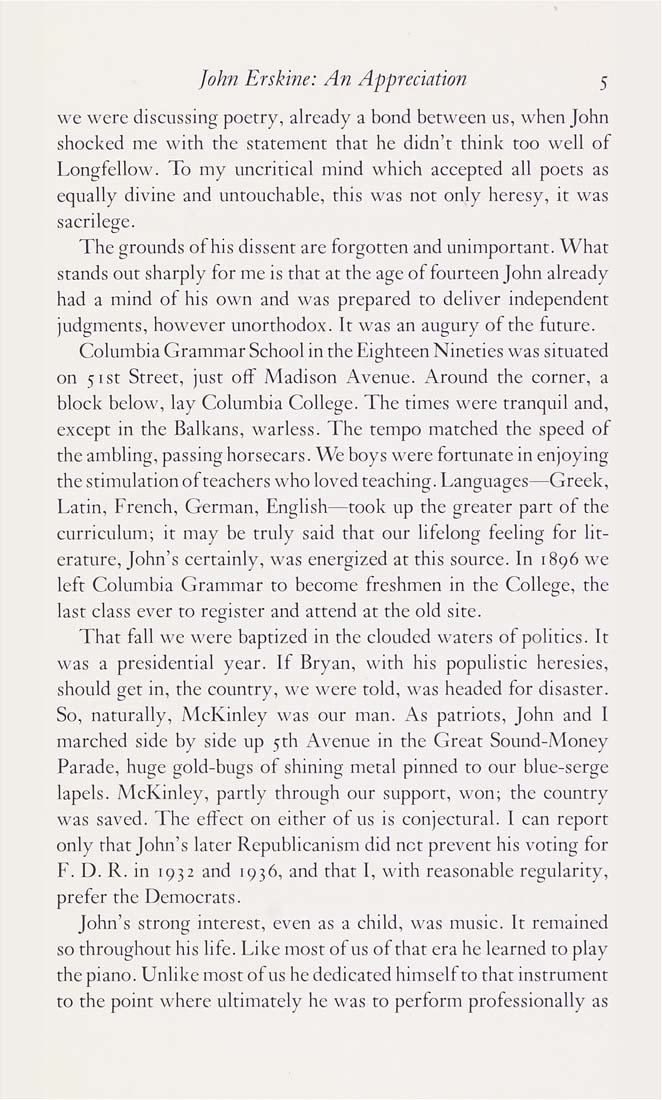Columbia Library columns (v.7(1957Nov-1958May))
(New York : Friends of the Columbia Libraries. )
|
||
|
|
|
|
| v.7,no.1(1957:Nov): Page 5 |

John Erskine: An Appreciation 5 we were discussing poetry, already a bond between us, when John shocked me with the statement that he didn't think too well of Longfellow. To my uncritical mind which accepted all poets as equally divine and untouchable, this was not only heresy, it was sacrilege. The grounds of his dissent are forgotten and unimportant. What stands out sharply for me is that at the age of fourteen John already had a mind of his own and was prepared to deliver independent judgments, however unorthodox. It was an augury of the future. Columbia Grammar School in the Eighteen Nineties was situated on 51st Street, just off Madison Avenue. Around the corner, a block below, lay Columbia College. The times were tranquil and, except in the Balkans, warless. The tempo matched the speed of the ambling, passing horseears. We boys were fortunate in enjoying the stimulation of teachers who loved teaching. Languages—Greek, Latin, French, German, English—took up the greater part of the curriculum; it may be truly said that our lifelong feeling for lit¬ erature, John's certainly, was energized at this source. In 1896 we left Columbia Grammar to become freshmen in the College, the last class ever to register and attend at the old site. That fall we were baptized in the clouded waters of politics. It was a presidential year. If Bryan, with his populistic heresies, should get in, the country, we were told, was headed for disaster. So, naturally, McKinley was our man. As patriots, John and I marched side by side up 5th Avenue in the Great Sound-Money Parade, huge gold-bugs of shining metal pinned to our blue-serge lapels. McKinley, partly through our support, won; the country was saved. The effect on either of us is conjectural. I can report only that John's later Republicanism did net prevent his voting for F. D. R. in 1932 and 1936, and that I, with reasonable regularity, prefer the Democrats. John's strong interest, even as a child, was music. It remained so throughout his life. Like most of us of that era he learned to play the piano. Unlike most of us he dedicated himself to that instrument to the point where ultimately he was to perform professionally as |
| v.7,no.1(1957:Nov): Page 5 |







